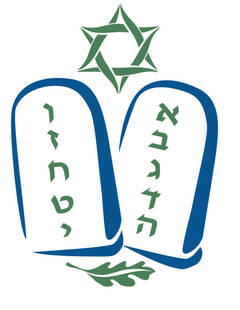06/27/2023 06:42:45 PM
On the morning of June 24, 1993, David Gelernter, a professor of computer science at Yale University, opened a package he'd received in the mail. Suddenly it blew up and nearly killed him. Gelernter was the 23rd victim of the Unabomber, the man now identified as Theodore Kaczynski, who died recently. As with his other victims, Gelernter had never even met Kaczynski.
Bleeding profusely, Gelernter managed to drag himself to the university clinic. When he arrived, his blood pressure was nearly zero. The bomb had blasted away much of Gelernter's right hand and shattered the wrist, broken his left hand, inflicted deep wounds on his chest and right leg, and permanently damaged his right eye so that his vision on that side is constantly blurred. He endured months of reconstructive surgery, but nevertheless because of the bomb will carry severe scars on his body for the rest of his life.
As it happens, David Gelernter is an observant Jew. He grew up on the Bible stories that recount how God delivered those faithful ones who suffered. He learned that faith is not the absence of doubt, but the presence of courage. Drawing on this perspective, he wrote these words:
So: What's the scoop on surviving a mail bomb? What do you learn? You learn that, at first, the past will seem only like a cause for mourning, but your job is to twist it around and make it a cause to rejoice. At the end of meals every Sabbath, observant Jews sing a psalm: “Those that sow in tears will reap shouting with joy. Weeping as he goes, he carries the seed bag -- and returns with shouts of joy….” [In other words, if]…you focus the big sweep of history on a single lifetime, the [psalmist] says, you see life as a stubborn return from sorrow again and again.
For most of us, David Gelernter’s courageous attitude is not only inspirational. It’s practically unbelievable. To give lip service to the power of faith to turn our mourning into joy is not unusual. And yet, to live through a nightmare and respond with joy and gratitude is no small feat. Given the same awful circumstance, would we respond with such faith? I hope we will not have to find out. But this I know: In the face of actual tragedy, the ability to shout with joy seems unimaginable.
As an observant Jew, David Gelernter may have a more active faith from which to draw support, and yet even Orthodox Jews surely must have their doubts at times about God and God’s role in our life. As the ancient rabbis declared, “There are times when God is found and times when God is not found….” For to be human means to live with at best a “moody faith.” Moments of confidence and joy in the gifts of life will be tempered with times of terrible questioning and anxiety. No one is immune from such highs and lows, from such periods of answers and questions. As the poet Robert Browning once observed, an irreligious person is one who lives a life of doubt diversified by faith, while a pious person is one who lives a life of faith diversified by doubt.
Most of us would not identify ourselves at either pole of intense skepticism or faith. We fall into the great middle area of wanting to believe but finding ourselves challenged by a harsh reality of injustice and sadness. We want to believe in a Higher Power. We want the universe to make sense. We seek consolation in the teachings of our tradition. But we also have our doubts, and these doubts are usually produced by our disappointments. In other words, if everything went well in our lives, if our expectations were always met, if there was no personal loss or suffering to visit us, then who would need bother with doubts about God and the goodness of life?
To doubt is to be human. To hope is also human. Life is lived in the balance.






